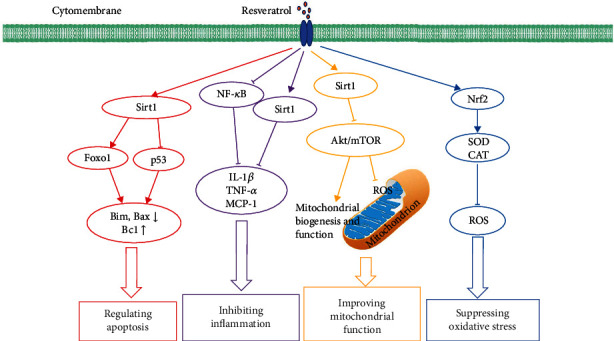Figure 2.

The mechanisms of resveratrol against aging. Resveratrol could stimulate the activity of nuclear factor erythroid-2 related factor 2 (Nrf2) and promote the activities of antioxidant enzymes, like superoxide dismutase (SOD) and catalase (CAT) to inhibit the production of reactive oxygen species (ROS), thus suppressing oxidative stress. Resveratrol could activate antiaging factor sirtuin1 (Sirt1) and downregulate the Akt/mTOR pathway to inhibit ROS in mitochondria and increase mitochondrial biogenesis and function, which could improve mitochondrial function. Resveratrol could promote the activities of nuclear-factor kappa B (NF-κB) and Sirt1 to decrease the levels of inflammatory markers, like interleukin-1β (IL-1β), tumor necrosis factor-α (TNF-α), and monocyte chemoattractant protein-1 (MCP-1) to inhibit inflammation. Resveratrol could upregulate Sirt1, subsequently promote forkhead box protein O1 (Foxo1), and inhibit p53, thereby modulating the levels of apoptotic proteins Bim and Bax and antiapoptotic protein Bcl, which could regulate apoptosis.
